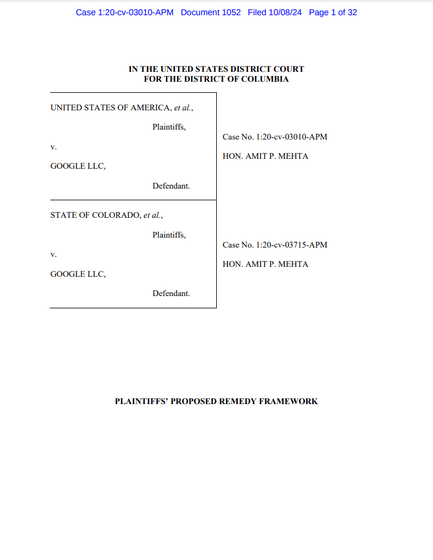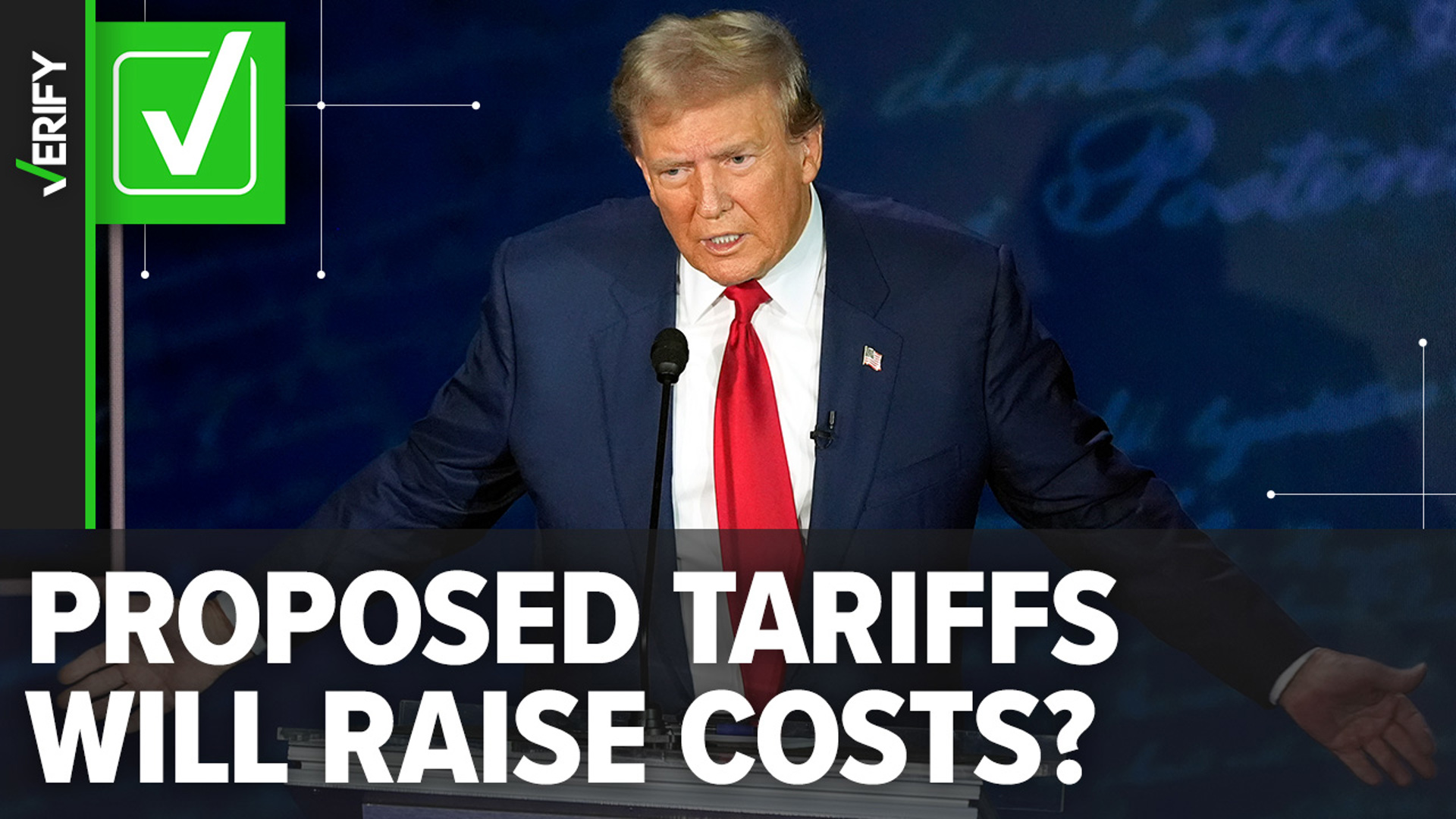DOJ And Google Head Back To Court: Search Monopoly Case Continues

Table of Contents
Keywords: Google, DOJ, antitrust lawsuit, search monopoly, search engine, Google search, competition, Department of Justice, court case, monopoly case, tech antitrust
The ongoing antitrust lawsuit between the Department of Justice (DOJ) and Google has returned to court, marking a significant escalation in the battle over Google's alleged dominance in the search engine market. This case, focusing on Google's alleged search monopoly, has far-reaching implications for competition, innovation, and the future of the internet. This article delves into the key arguments, evidence, and potential outcomes of this crucial legal battle.
The Department of Justice's Antitrust Allegations Against Google
The DOJ's core argument centers on the assertion that Google has engaged in anti-competitive practices to maintain its dominant position in the search engine market. They contend that Google’s actions stifle competition and ultimately harm consumers. This involves allegations of:
- Exclusive deals with mobile carriers and manufacturers: The DOJ claims Google made lucrative deals with phone manufacturers and carriers, requiring them to pre-install Google Search as the default search engine, effectively locking out competitors. This prevents users from easily switching to alternative search engines.
- Impact on competitors: These practices, the DOJ argues, significantly hindered the ability of smaller search engines to gain traction and compete effectively with Google. This lack of competition limits innovation and consumer choice.
- Harm to consumers: By limiting competition, the DOJ contends, Google is able to control the search experience, potentially manipulating search results to favor its own products and services, ultimately harming consumers by limiting exposure to alternative options.
- Specific examples: The lawsuit cites specific examples of contracts and agreements between Google and various mobile device manufacturers that illustrate these alleged anti-competitive practices. These examples serve as key pieces of evidence for the DOJ’s case.
Google's Defense Strategies in the Ongoing Search Monopoly Case
Google vehemently denies the DOJ's allegations, arguing that its dominance is a result of superior products and services that consumers actively choose. Their defense strategy involves:
- Superior products and services: Google maintains that its search engine provides a superior user experience compared to its competitors, explaining its market share organically. They emphasize ongoing improvements in their algorithms and features.
- Consumer choice and benefits: Google highlights the fact that users can choose alternative search engines if they wish. They argue that the pre-installation of Google Search is simply a convenience for users, not an impediment to competition.
- Counter-evidence and expert testimony: Google’s defense involves presenting counter-evidence and expert testimony to challenge the DOJ's claims. This may include data illustrating consumer satisfaction and usage patterns.
- Delaying or weakening the case: Legal strategies employed by Google may aim to delay the case proceedings or otherwise weaken the DOJ's arguments, potentially involving procedural challenges.
The Role of Key Evidence and Witnesses
The outcome of the case hinges on the strength and credibility of the evidence presented by both sides. This includes:
- Documents and emails: Internal Google communications, contracts, and other documents are central to the case, providing insights into Google's business practices and strategic decisions.
- Strengths and weaknesses of evidence: Both sides will attempt to highlight the strengths of their evidence while challenging the credibility and relevance of the other side's evidence.
- Witness testimonies: The testimony of Google executives and other key witnesses will play a crucial role in shaping the court's perception of the case. Their credibility and the details of their testimony will be heavily scrutinized.
Potential Outcomes and Implications of the Google Antitrust Case
The potential outcomes of this case are significant and far-reaching:
- Fines and penalties: If found guilty, Google could face substantial fines and penalties.
- Structural changes: The court could order structural changes to Google's business practices, potentially requiring them to alter their relationships with mobile manufacturers and carriers.
- Implications for the broader tech industry: The outcome of this case will significantly impact how other large technology companies are viewed and regulated.
- Impact on consumers: The case's outcome will influence the level of competition in the search engine market, potentially leading to more choices and innovation for consumers.
The Broader Context of Tech Antitrust Scrutiny
The Google antitrust case is part of a broader wave of antitrust actions against large technology companies.
- Other companies facing scrutiny: Companies like Facebook, Amazon, and Apple have also faced or are currently facing antitrust investigations.
- Market concentration concerns: Growing concerns over market concentration in the tech sector have fueled these investigations.
- Debate over regulation: The ongoing debate about appropriate regulations for large technology companies is central to this wave of antitrust actions.
- Relevant legislation and regulatory actions: Recent legislation and regulatory actions reflect the evolving approach to antitrust enforcement in the tech industry.
Conclusion
The DOJ's antitrust lawsuit against Google over its alleged search monopoly represents a crucial legal battle with significant implications for competition, innovation, and the future of the digital marketplace. The DOJ's allegations of anti-competitive practices, Google’s defense strategies, and the potential outcomes all carry significant weight. Understanding the intricacies of this Google antitrust lawsuit and the broader context of tech antitrust scrutiny is critical.
Call to Action: Stay informed about the ongoing developments in the DOJ and Google search monopoly case by following [link to relevant news source or your website]. The Google antitrust lawsuit continues to shape the future of search engine competition and digital markets; understanding the key arguments and potential outcomes is critical. Continue to monitor the search monopoly case and its impact.

Featured Posts
-
 Closer Security Links Forged Between China And Indonesia
Apr 22, 2025
Closer Security Links Forged Between China And Indonesia
Apr 22, 2025 -
 Harvards 1 Billion Funding In Jeopardy Exclusive Details On Trump Administrations Actions
Apr 22, 2025
Harvards 1 Billion Funding In Jeopardy Exclusive Details On Trump Administrations Actions
Apr 22, 2025 -
 The Just Contact Us Phenomenon Tik Toks Response To Tariffs
Apr 22, 2025
The Just Contact Us Phenomenon Tik Toks Response To Tariffs
Apr 22, 2025 -
 Conclave 2024 Evaluating Pope Franciss Papacy
Apr 22, 2025
Conclave 2024 Evaluating Pope Franciss Papacy
Apr 22, 2025 -
 Building Voice Assistants Made Easy Open Ais 2024 Developer Announcements
Apr 22, 2025
Building Voice Assistants Made Easy Open Ais 2024 Developer Announcements
Apr 22, 2025
